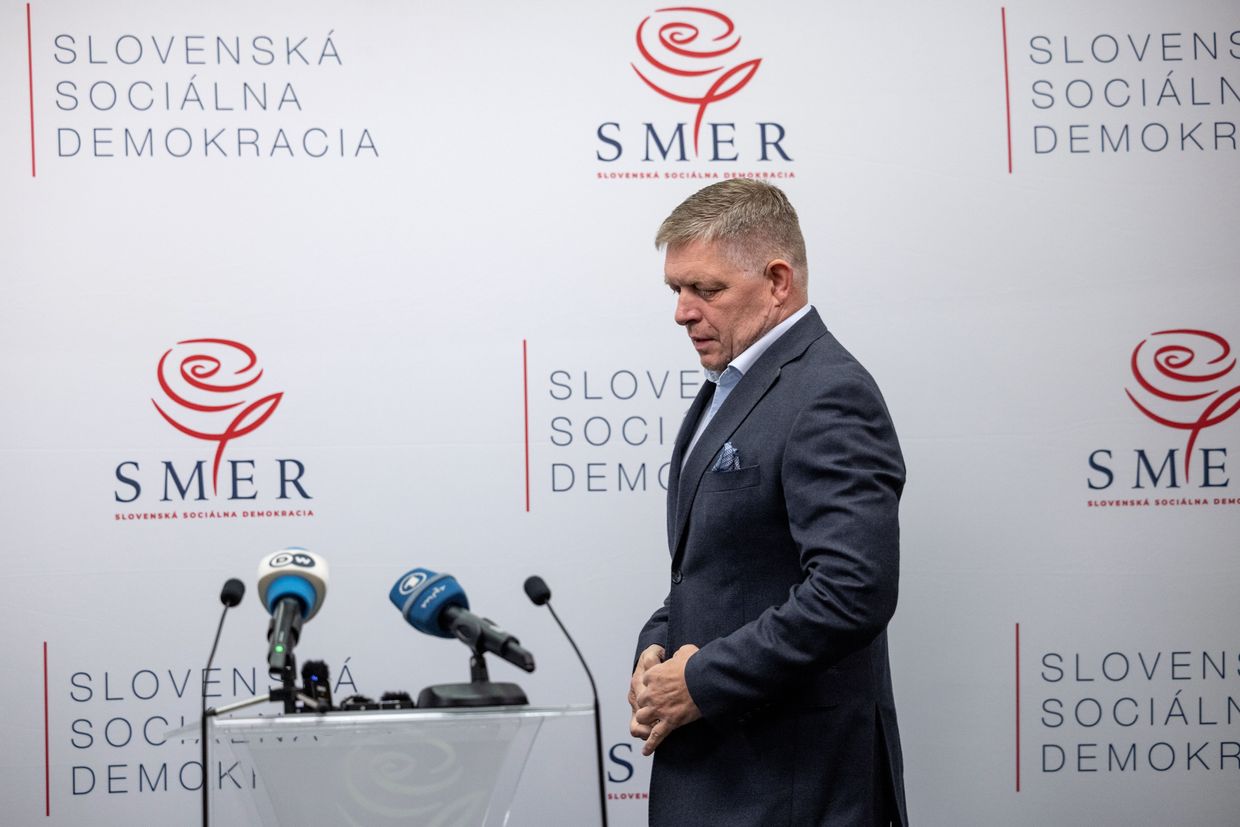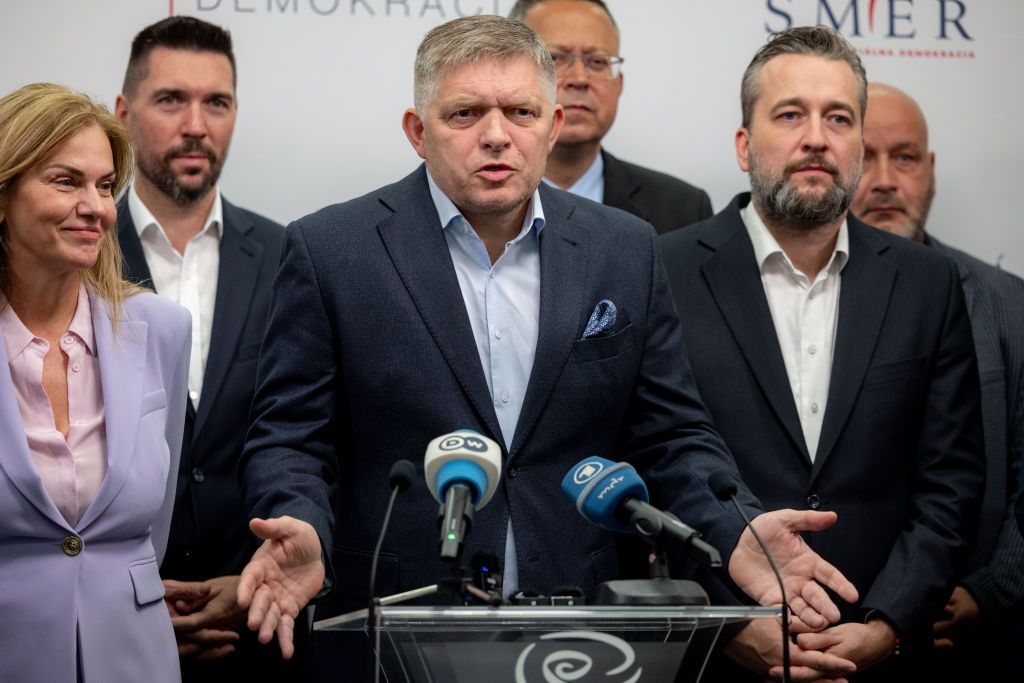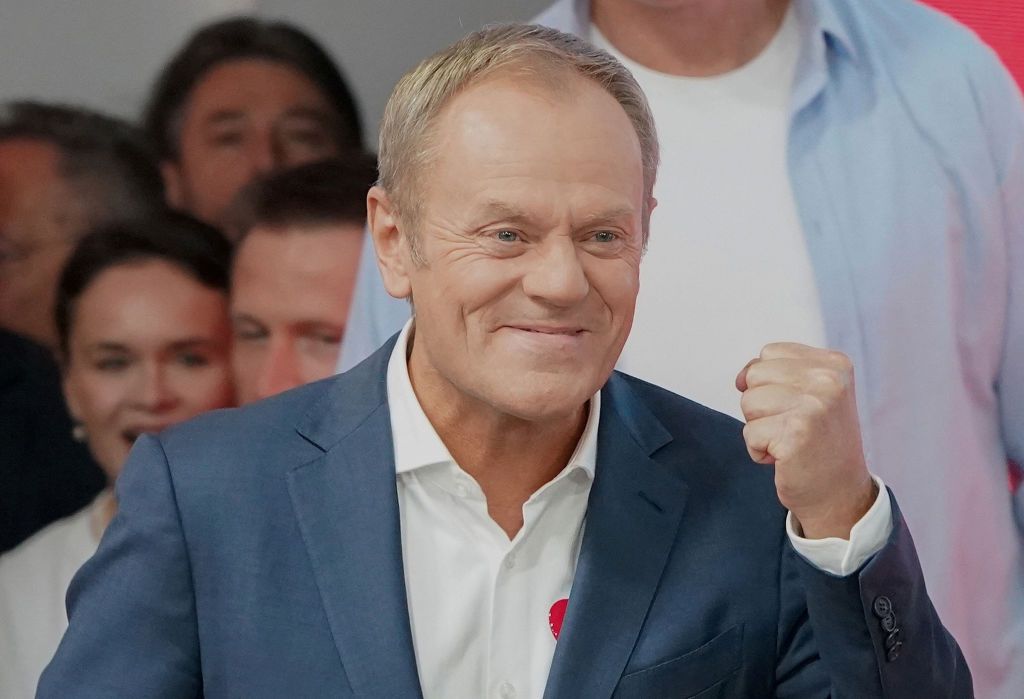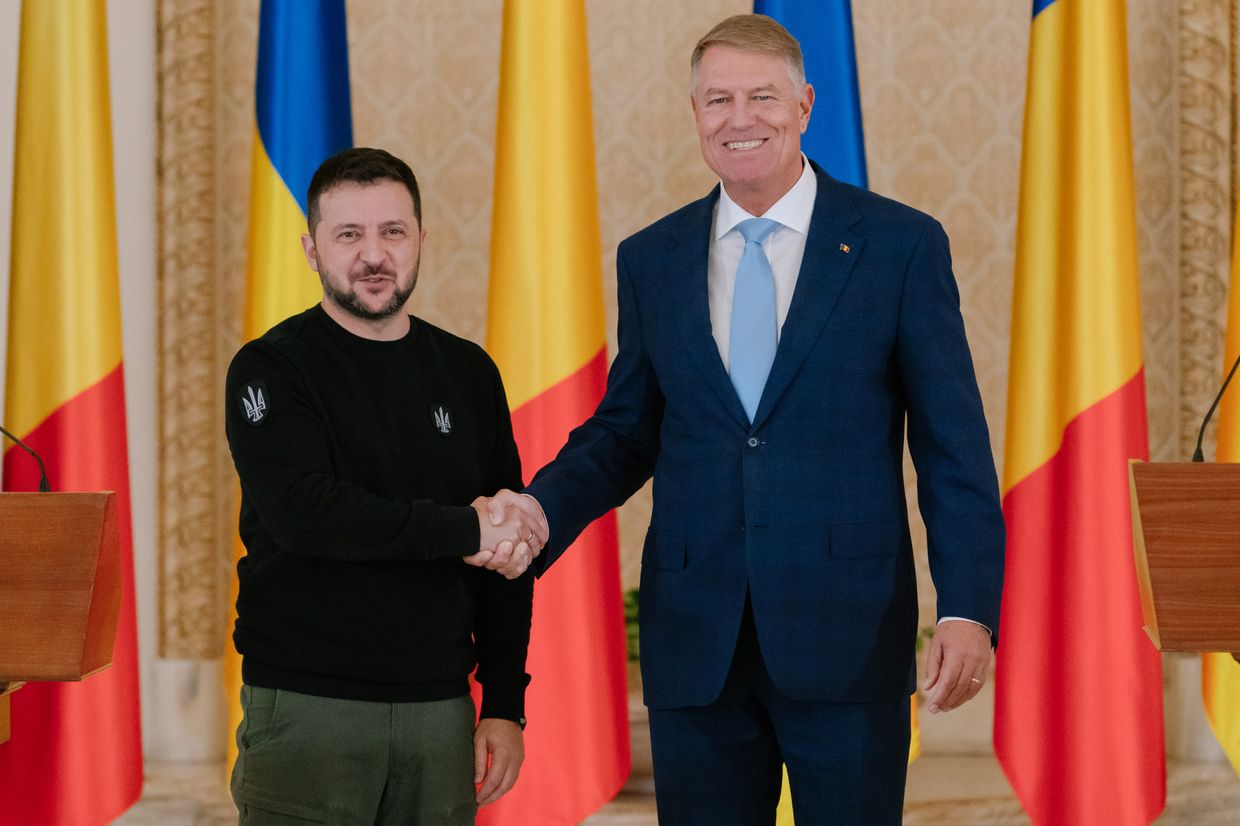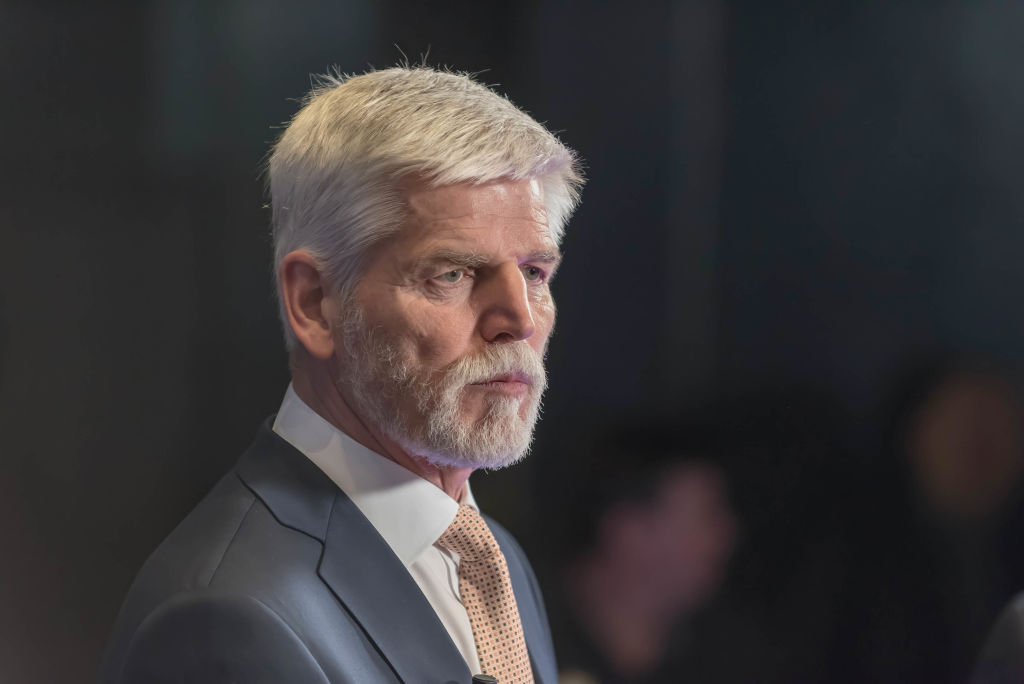Rise of populism in Ukraine's neighborhood: Not as gloomy as you think

Slovakia's new Prime Minister, Robert Fico, is consistent in his comments that his country will stop providing aid to Ukraine.
He also regularly parrots Russian propaganda, blaming Kyiv for Russia's invasion. This makes two of them, with Hungary's Prime Minister Viktor Orban long being accused of being Moscow's favorite EU leader.
And while a week after Fico's win in Slovakia, Polish voters handed a win to the left-leaning pro-European liberal block, the rise of illiberal populism has raised concerns in Kyiv and Western capitals.
Future elections in Romania and the Czech Republic also have the potential to hamper the stability of the pro-Ukrainian coalition next door.
A more thorough look reveals, however, that Central and Eastern European populist leaders lack the will, strength, and, for that matter, interest to form an actual anti-Ukrainian bloc within the EU.
Should the number of populist governments in the region grow – which, as Poland shows, is far from certain – experts say that Kyiv and Brussels can expect tougher negotiations on aid and sanctions but not an overtly pro-Russian coalition formed on ideological grounds.
Slovakia, Poland on opposite tracks
Fico's populist Smer (Direction) party won the latest Slovak parliamentary elections with 23% of the vote. It soon formed a coalition government with its more moderate breakaway Hlas (Voice) party and the ultranationalist Slovak National Party (SNS).
This result was likely a disappointment for the Ukrainian leadership, as part of Fico's campaign rested on fearmongering about escalating tensions with Russia and opposition to defense assistance for Kyiv.
This was to be expected – the four-time prime minister did not have warm relations with Kyiv during his previous terms, and successfully attacked the previous Slovak government for actively supporting Ukraine.
A survey by the think tank Globsec shows that 69% of Slovaks fear that arms supplies to Ukraine risk an escalation with Moscow, the highest number in the region. The country also has the highest percentage of people blaming the West (34%) or Ukraine (17%) for causing the war.
But it was a combination of high inflation and the chaotic legacy of the previous government that paved the way to Smer's victory.
According to Globsec analyst Lukas Dravecky, Fico's heated rhetoric had more to do with capitalizing on popular sentiments rather than an ideological basis for Bratislava's new foreign policy.
With the victory safe in his pocket, Fico began to soften his statements.
Despite his earlier pledge not to send a "single cartridge" to Ukraine once elected, he recently clarified that this concerns only old Soviet-era stocks – which are already running dry – and not commercial sales.
Notably, he did not make this distinction during the election campaign.
Banning arms sales would be against Bratislava's own interest, after all. Canceling joint contracts with NATO allies to provide Ukraine with 16 Zuzana 2 self-propelled howitzers could hit the state-owned Konstrukta-Defence company and cause job loss.
Smer-appointed Defense Minister Robert Kalinak himself holds shares in the defense industry.
Fico's opposition to anti-Russia sanctions rests rather on avoiding negative fallout for the Slovak economy. The new prime minister will probably seek to negotiate exemptions from measures that could impact his country rather than block them completely, Dravecky said.
This won't differ that much from the previous pro-Ukrainian government that asked to be exempt from the EU's Russian energy embargo.
When it comes to the 100,000 Ukrainian refugees living in Slovakia, little is expected to change, with Fico himself promising that humanitarian support would continue.
In neighboring Poland, the elections had a strikingly different outcome.
The right-wing populist Law and Justice (PiS) party, which nonetheless was one of Kyiv's most ardent supporters, providing extensive military, humanitarian, and diplomatic support, is set to lose government.
The months ahead of the Oct. 15 elections were, however, marked by disputes over Warsaw's embargo on Ukrainian grain and spirited statements by leaders on both sides.
An additional concern to Ukraine was the far-right Confederation party, the only major player in Polish politics openly critical of the support for Ukraine.
However, in an effort to win over support from farmers and to capitalize on growing discontent with Ukrainian refugees, the Confederation whipped up the anti-Ukraine card too early, peaking months before the election and gaining a mere 7.2%.
Elections to follow
Romania is yet another of Ukraine's neighbors whose support is vital for Kyiv.
The country facilitates around 60% of Ukrainian grain transit, which is especially important now amid Russia's threats to Ukraine's Black Sea shipping.
Late 2024 will be quite a busy time at Romanian polling stations as the country is expecting to hold parliamentary, presidential, and local elections.
The latest surveys assign a strong position to the far-right populist Alliance for the Union of Romanians (AUR), putting it second (20%) behind the ruling PSD social democrats (30%) but ahead of their liberal coalition partners, the PNL (18%).
At first sight, these numbers should raise worries in Ukraine, given the AUR's platform of Romanian irredentism, hard Euroskepticism, and conspiracy peddling, mixed with doses of post-Soviet nostalgia and pro-Russian propaganda.
The AUR's leader, George Simion, who is a persona non grata in both Moldova and Ukraine, criticized Bucharest's grain agreement with Kyiv and the support his country provides, including the planned F-16 training for Ukrainian pilots on Romanian territory.
With the elections coming and the AUR's numbers growing strong, the party seems to be toning down its rhetoric, however.
According to Vlad Adamescu, co-founder of the Politica La Minut publication, the Alliance "is trying to become more palatable to the electorate" in comparison to its more radical and overtly pro-Russian breakaway, S.O.S. Romania, currently polling little below the 5% threshold.
S.O.S.'s leader and conspiracy theorist Diana Sosoaca made not-so-veiled threats to President Volodymyr Zelensky during his October visit to Bucharest. "Don't dare to put him in the Romanian parliament," said the lawmaker.
Zelensky's speech in Romania's parliament was canceled at the time. The media connected this to "possible disruptions" by "parliamentarians with pro-Russian sympathies."
"Seeing that she's so extremist makes the AUR much more approachable, even though their ideas are quite similar," Adamescu's colleague, Razvan Petri, commented. "Suddenly, the AUR becomes a potential coalition partner."
According to Petri and Adamescu, the AUR's participation in the next government is a possible but not the most likely scenario.
With enough strength in the parliament, the AUR could stoke up negative sentiments regarding issues like the F-16 training base in Romania. However, they are unlikely to bring about a major shift in Bucharest's policies toward Ukraine, Petri and Adamescu agree.
The parliamentary elections in Czechia are still relatively distant – expected to be held in 2025 – but current polls give the country's leading populist party, Andrej Babis's ANO (Action of Dissatisfied Citizens), a decent chance at unseating the ruling coalition.
Babis made headlines in Ukrainian media during the presidential elections in early 2023, where he – unsuccessfully – tried to utilize refugee and war fatigue in an effort to defeat his pro-Western, pro-Ukrainian opponent, Petr Pavel.
This earned him the label of a "pro-Russian" candidate in some Ukrainian headlines, which is not wholly deserved.
Babis's talking points were aimed mainly against the social support for Ukrainian refugees at the supposed expense of the Czech population. He also made vague pledges to seek peace in Ukraine, styling himself a peacemaker in contrast with retired General Pavel.
Babis's past record as the prime minister between 2017 and 2021 does not suggest he has any interest in a direct conflict with other EU capitals.
"He tried to play this (anti-Ukraine card) in his presidential campaign, but it was clear that this was not a winning card, as the Czech society took a more resolute stance against Russian aggression than the Slovak society," said Pavel Havlicek, an analyst at the Association for International Affairs, when comparing Babis's and Fico's campaign tactics.
A somewhat greater risk is posed by the far-right SPD (Freedom and Direct Democracy) party of Tomio Okamura, a radical force that openly promotes Russian propaganda narratives and is not shy of racist statements about Ukrainian refugees.
"The SPD is a force more likely to seek 'normalization' of Russia ties," Havlicek commented, giving cooperation in the energy sector as an example.
Polling at around 10%, Okamura's populists are the main coalition option for Babis' ANO, accounting together for around 40% of the vote as of October pollsters.
According to Havlicek, however, even many of ANO's current members seem unwilling to get involved with the SPD.
Tougher talks
Despite Fico's victory in Slovakia, and room for success for populists in Romania and the Czech Republic, their influence on the EU's policy toward Ukraine shouldn't be overestimated.
Most of these countries receive much more from the EU budget than they put in, meaning opposition to the foreign policy mainstream would risk their own isolation rather than threaten to draw others to their side, according to Dravecky.
The questions on aid to Ukraine and sanctions on Russia will most likely be a chance for present and future populist governments to blackmail Brussels on questions that will help them domestically.
For example, Budapest links its opposition to the EU's $530 million Ukraine military aid package to Kyiv's – now suspended – listing of Hungary's largest commercial bank as a "sponsor of terrorism."
Orban's government is also opposing the $53 billion package for Kyiv, trying to unblock billions in Hungary-destined funding frozen by the EU Commission.
Likewise, rather than completely opposing continued aid for Ukraine, Fico listed conditions for Bratislava's support, which included funding for Slovak infrastructure in border areas and support for Slovak companies in the reconstruction of Ukraine.
Dravecky noted we are likely to expect more pragmatism from Fico than from Orban, whose politics have more ideological undertones in comparison.
Havlicek thinks, however, that even the Hungarian prime minister remains primarily a businessman who has to "play his game" with autocratic leaders for very utilitarian purposes, such as the development of Hungary's nuclear power plant, built by Russia's Rosatom.
Yet, the threat of rising populist forces capitalizing on Ukraine war fatigue should not be underestimated, Havlicek warns.
As the pro-Ukraine drive settles down after months of relatively static battlefield developments, the economic fallout of the war will be increasingly more palpable among Kyiv's partner countries.
This is certain to play into the hands of the populists and could make Kyiv's path toward EU membership much more difficult.


